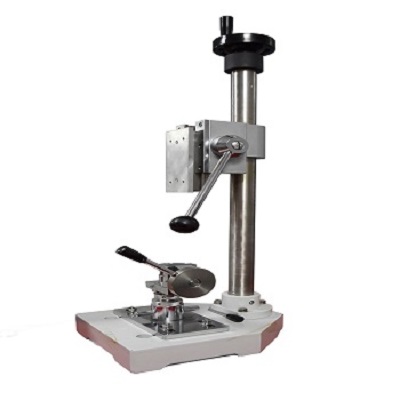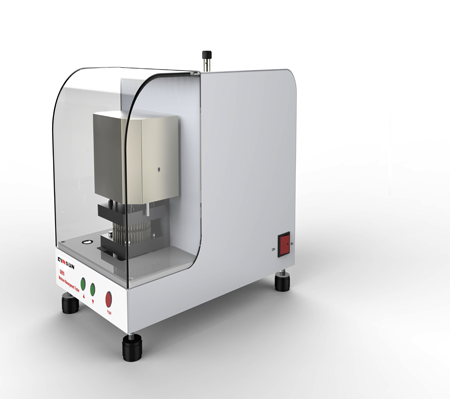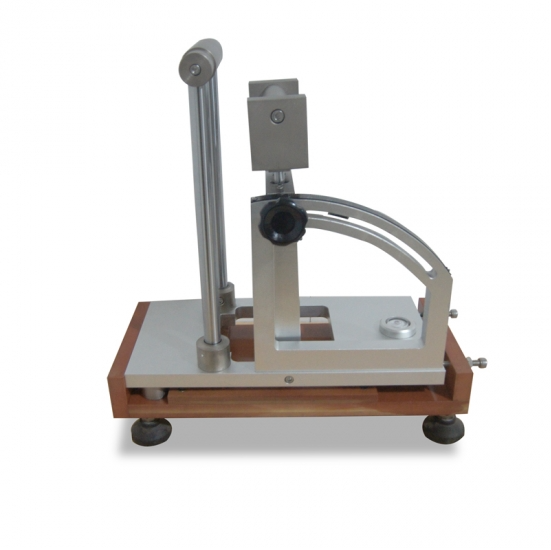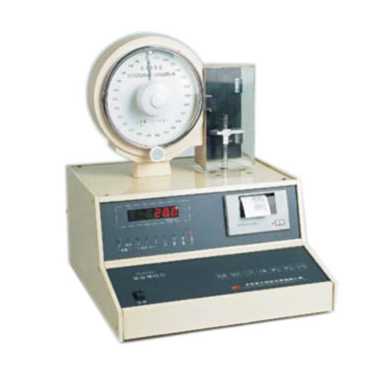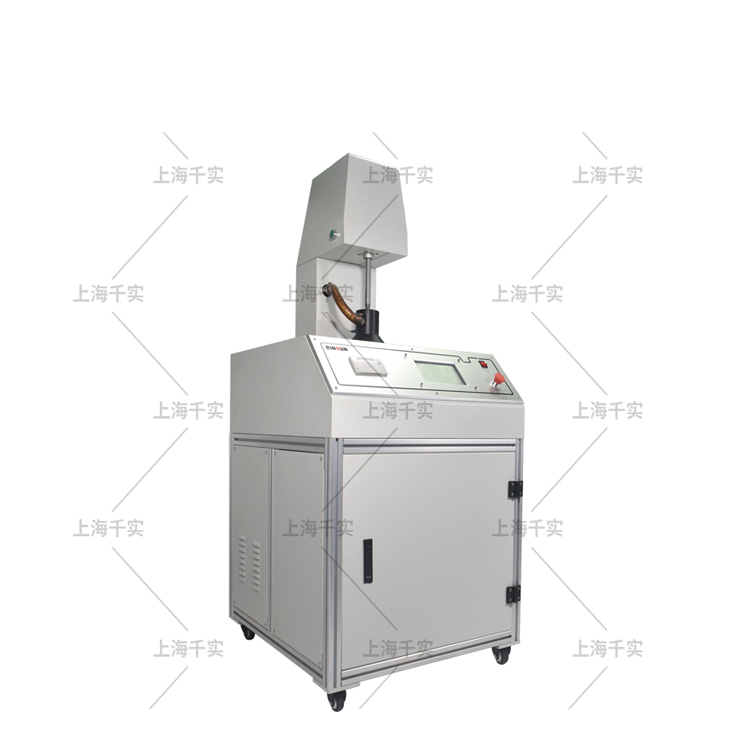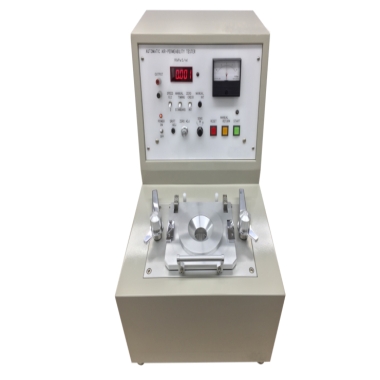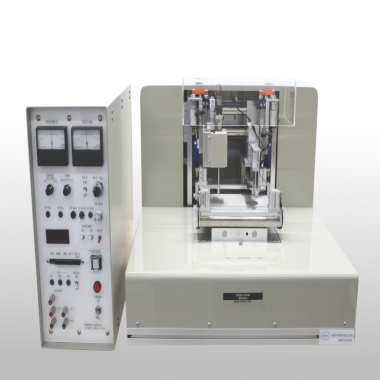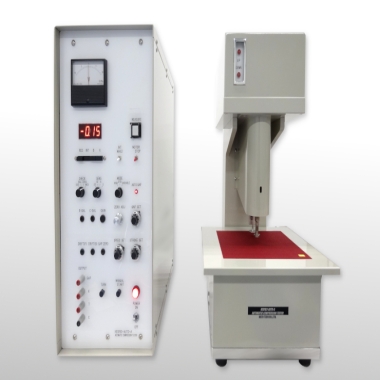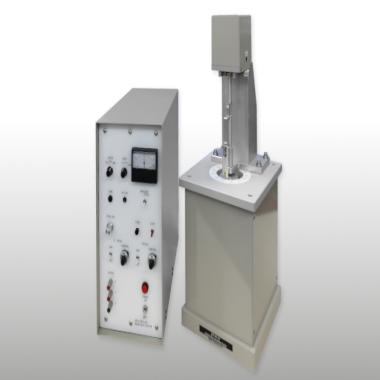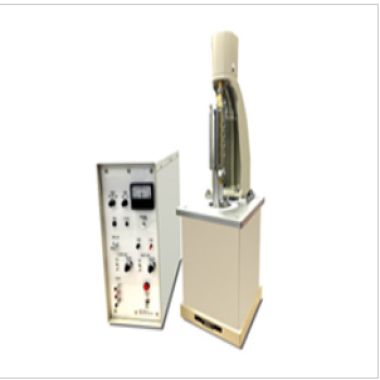button snap pull testing machine


Snap Button Tester
Testing Standards:
ASTM D7142-2/F963, CFR 1500, EN 71 PART 1, GB 6675, ISO 8124, M&S P115A
.
Product Information:
The Snap Tester consists of an Upper Snap Clamp, a Lower Fabric Clamp & Force Gauge mounted on a stand. The snap component is gripped by the Upper Snap Clamp and the garment is fixed to the lower Fabric Clamp. By turning the Top Flywheel, the operator can apply a specific force and the holding force or the breaking strength can be recorded. Capability can be enhanced with clamps & accessories for testing of other Snaps, Jean Buttons, Four Hole Buttons & Garments Accessories such as Zippers, Bows, Appliqué, Toggles, Hooks/Bars, and D-Rings, amongst others.
Features:
1. Ensure the vertical alignment of tension;
2. Fixed button edge without affecting its adhesion;
3. Consistent force of 10s continuously;
4. Elevate and fix the position of the test meter through the handle, easy to change samples
5. Horizontal hand wheel, designed to cooperate with ergonomic principles to make operators more comfortable;
6. Safety buckle design makes operation more secure and reliable;
7. The long machine frame can extend the test scope more widely;
8. The concealed spring is designed to greatly increase the pin tightening and ensure the test repeatability;
9. Can reduce the damage caused by slid leakage during test process;
10. Simple design and accurate test results.
Button Pull Test Method
Button pull test condition:
Before conducting the button pull test, we need to put the specimen into the condition of moisture equilibrium for button attachment strength test in the standard atmospheric according to Practice D1776.
Button pull test procedure:
1.We set up and verify the button strength tester by using 15lb (6.82kg)±10% calibration weights. (Note: The calibration weights are optional.)
2.We attach the suitable upper clamp to the hook of the Pull Gauge. (Note: Accessories are optional.)
3.Adjusting the Pull Gauge to zero position by Zero Tare Ring. (Note: The Pull Gauge is under “ON” switch.)
4.Place the specimen on the correct position, the concave indent of the Lower Fabric Clamp. And the button is positioned centrally. Through the press of the Arm of Lower Fabric Clamp to clamp the fabric tightly.
5.Lowering the Universal Clamp until it is above the test piece by the Right-hand Flywheel.
6.Clamping the button of specimen onto the Universal Clamp. (Note: The horizontal arm keeps upward so that it can clamp the test piece easier.)
Driving downward the Universal Clamp to clamp the specimen;
To adjust the Upper Snap Clamp, until its edges of three claws just touch the circumferential edge of the button;
To ensure that only the button is held by the clamp, and the fabric is not affected;
Tightening the clamp to grip the button at the same time.
(Note: If larger button need to be tested, it should use the Upper Grasp Clamp, the original holding plate in the Lower Fabric Clamp is replaced with the Grasp Clamp.)
7.Turning on the “ON” switch. If necessary, we can re-adjust it to zero position.
8.Turning the Right-hand Flywheel to keep the clamp moving upward.
The button may separate from fabric while the gauge reading is lowering than 7 kg;
If the button bears the 7 kg force, the clamp should hold it for few seconds and loosen it; (Note: The force applies from 0 to 7 kg within 5 seconds.)
When the breaking load reaches 7 kg or less, we should record the data of breaking power.If the button is not separated from the fabric until 7 kg, operator should adjust the Pull Gauge to “ON” switch again to stop it and keep the force of 7 kg for 10 seconds.
If the fabric is slipped out of the Lower Fabric Clamp during the test, we suggest to repeat the step 4 with a new specimen.
9、If the button is slipped from the Upper Clamp during the test, we have to discard the it and repeat the test procedure with a new specimen.
10、The rest of male and female button specimen should repeat step 2-9 and record its result.
Other supplier products
|
|
universal wear resistance testing equipment |
The Universal Wear Tester is used to test wear and abrasion resistance of fabrics for apparel, shoes, upholstery, automotive, and many other areas.... |
|
|
Moisture Management Tester |
MMT Moisture Management Tester
Testing Standards:
AATCC 195, SN 1689.1, GB/T 21655.2
Applications:
The Moisture Management Tester (MMT) is an e... |
|
|
MARK II Slip Resistance Tester |
Application:
MARK II Slip Resistance Tester used the the principle of the ratio of load horizontal force to vertical force, test the maximum stati... |
|
|
Curl elasticity detector |
Crimp elasticity detector is mainly used to determine the curl, curl elasticity, curl recovery rate and their statistical value of 1 ~ 22dtex fiber... |
|
|
Medical face mask particle protection tester |
Medical face mask particle protection testercan be used to detect the filtration efficiency and resistance of particles such as masks and filter ma... |
All supplier products
Same products





